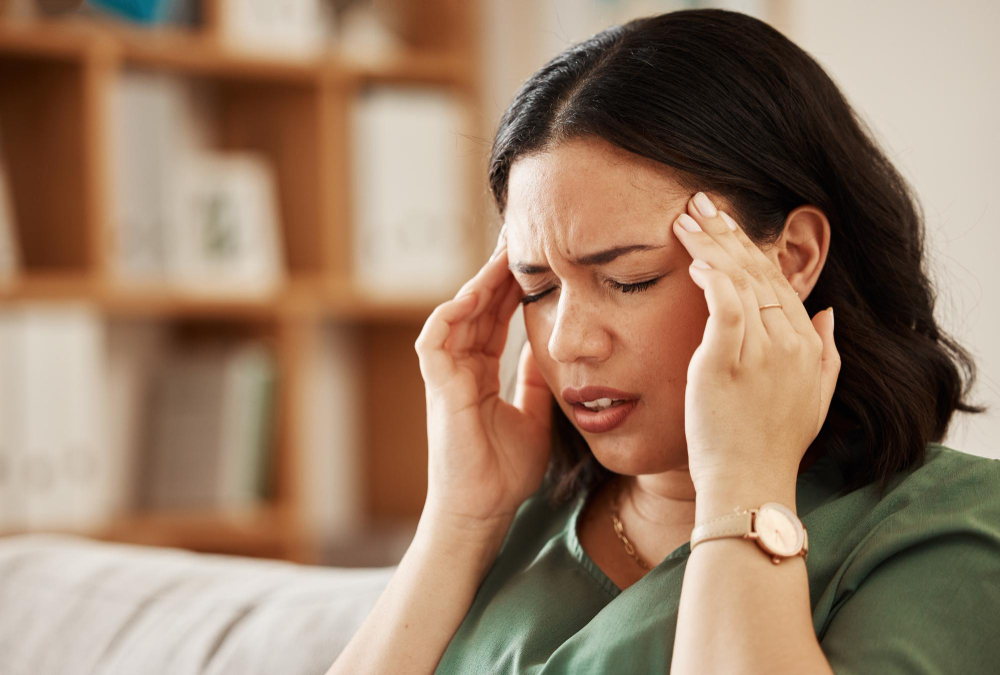
Headaches affect nearly everyone at some point, yet finding effective relief can feel overwhelming when you're dealing with throbbing pain. Whether you're experiencing tension headaches from work stress, migraines that disrupt your daily routine, or occasional headaches that seem to appear out of nowhere, understanding your options for relief is essential.
The good news? Multiple proven strategies can help reduce headache frequency and intensity. From simple lifestyle adjustments to medical treatments, the right approach depends on your specific headache type and triggers. This guide explores evidence-based methods to help you find the relief you need and get back to feeling your best.
Before exploring treatment options, recognizing your headache type helps determine the most effective relief strategy. Each type responds differently to various treatments.
Tension headaches are the most common variety, typically causing a dull, aching sensation around your head with tightness across your forehead or the back of your neck. These often result from stress, poor posture, or muscle tension.
Migraines present as intense, throbbing pain usually on one side of your head, often accompanied by nausea, vomiting, or sensitivity to light and sound. They can last anywhere from a few hours to several days.
Cluster headaches occur in cyclical patterns and cause severe burning or piercing pain around one eye. They're less common but extremely painful.
Sinus headaches develop from sinus inflammation and typically cause pressure around your forehead, cheeks, and eyes, especially when bending forward.
Pain relievers offer quick relief for many headache sufferers. Acetaminophen works well for mild to moderate headaches, while ibuprofen and aspirin can reduce inflammation that contributes to headache pain. Always follow dosage instructions and consult a healthcare provider if you're taking these medications frequently.
Applying a cold compress to your forehead or the back of your neck can numb pain and reduce inflammation. Ice packs work particularly well for migraines. Alternatively, heat therapy using a warm compress on your neck and shoulders helps relax tense muscles that trigger tension headaches.
Dehydration ranks among the most common headache triggers. Drinking water immediately when a headache starts can provide relief within 30 minutes to three hours. Aim for at least 16-20 ounces of water and continue sipping throughout the day.
Peppermint oil contains menthol, which can help relax muscles and ease pain. Apply diluted peppermint oil to your temples and forehead for relief. Lavender oil may also help reduce headache intensity when inhaled or applied topically.
Ginger tea can be particularly effective for headaches accompanied by nausea, while chamomile tea helps promote relaxation and may reduce tension headache symptoms.
Simple neck and shoulder stretches can relieve muscle tension contributing to headaches. Try slowly rolling your shoulders, gently tilting your head from side to side, or performing basic yoga poses like child's pose.
Maintaining consistent sleep patterns significantly reduces headache frequency. Aim for 7-9 hours of quality sleep each night and try to go to bed and wake up at the same times daily, even on weekends.
Chronic stress is a major headache trigger. Incorporate stress-reduction techniques like deep breathing exercises, meditation, or regular physical activity into your routine.
Certain foods can trigger headaches in sensitive individuals. Common culprits include aged cheeses, processed meats, chocolate, and foods containing MSG. Keep a food diary to identify potential triggers and consider eliminating them from your diet.
Regular meals are equally important. Skipping meals can cause blood sugar drops that trigger headaches, so maintain consistent eating schedules.
Moderate exercise releases endorphins, which are natural pain relievers. Activities like walking, swimming, or cycling for 30 minutes most days can help prevent headaches. However, avoid intense exercise during a headache, as it may worsen symptoms.
While many headaches respond well to self-care measures, certain symptoms warrant immediate medical attention. Seek emergency care for sudden, severe headaches unlike any you've experienced before, headaches accompanied by fever and stiff neck, headaches following a head injury, or headaches with vision changes, confusion, or difficulty speaking.
You should also consult a healthcare provider if your headaches are becoming more frequent or severe, interfering with daily activities, or not responding to over-the-counter treatments.
For residents seeking quality healthcare, primary care providers can help develop comprehensive headache management plans tailored to your specific needs and medical history.
Healthcare providers may prescribe specific medications for chronic headaches or migraines. Preventive medications taken daily can reduce headache frequency, while rescue medications provide relief during acute episodes.
Physical therapists can address posture issues and muscle imbalances that contribute to tension headaches. They'll teach you exercises and techniques to prevent future headaches.
Some people find relief through acupuncture, massage therapy, or chiropractic care. While research results vary, these therapies may be worth exploring under professional guidance.
Effective headache management often requires a combination of approaches. Start by identifying your triggers through careful observation and record-keeping. Notice patterns related to stress, sleep, diet, weather changes, or hormonal fluctuations.
Develop a toolkit of relief strategies that work for you. This might include keeping over-the-counter pain relievers accessible, practicing relaxation techniques, maintaining regular sleep schedules, and staying well-hydrated throughout the day.
Remember that what works for others may not work for you, and finding the right combination of treatments may take time and experimentation.
Managing headaches effectively requires understanding your specific triggers and having multiple relief strategies at your disposal. From immediate remedies like hydration and cold therapy to long-term lifestyle changes involving sleep, diet, and stress management, numerous options can help you find relief.
The key is developing a personalized approach that addresses both immediate pain relief and long-term prevention. Pay attention to patterns in your headaches, experiment with different relief methods, and don't hesitate to seek professional guidance when needed.
If you need primary care in Philadelphia, PA, contact Vital Urgent Care today to request an appointment. Their experienced healthcare providers can help you develop an effective headache management plan tailored to your specific needs and lifestyle.